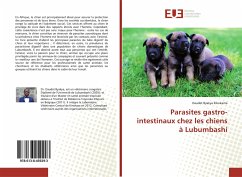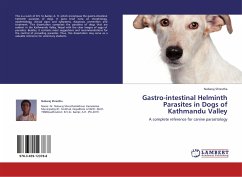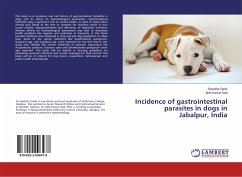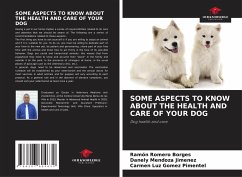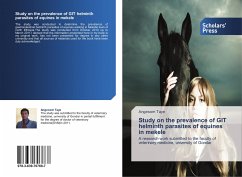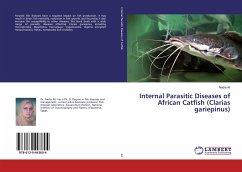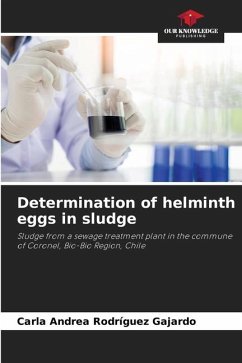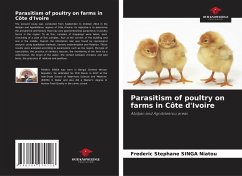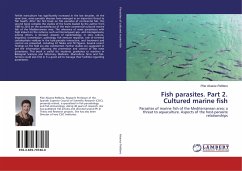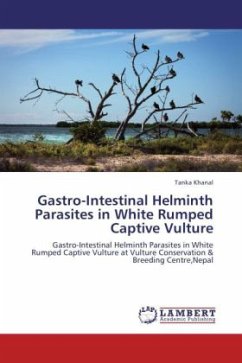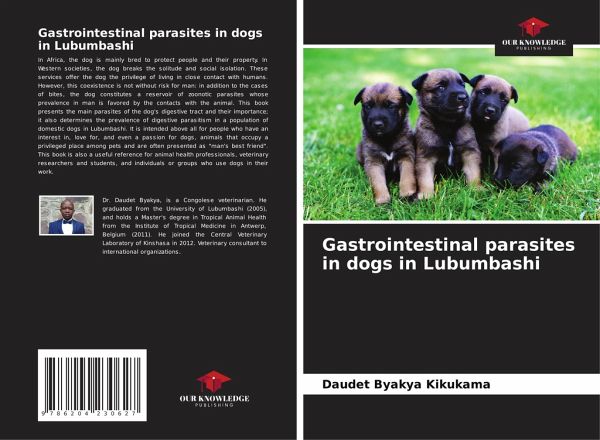
Gastrointestinal parasites in dogs in Lubumbashi
Versandkostenfrei!
Versandfertig in 6-10 Tagen
27,99 €
inkl. MwSt.

PAYBACK Punkte
14 °P sammeln!
In Africa, the dog is mainly bred to protect people and their property. In Western societies, the dog breaks the solitude and social isolation. These services offer the dog the privilege of living in close contact with humans. However, this coexistence is not without risk for man: in addition to the cases of bites, the dog constitutes a reservoir of zoonotic parasites whose prevalence in man is favored by the contacts with the animal. This book presents the main parasites of the dog's digestive tract and their importance; it also determines the prevalence of digestive parasitism in a populatio...
In Africa, the dog is mainly bred to protect people and their property. In Western societies, the dog breaks the solitude and social isolation. These services offer the dog the privilege of living in close contact with humans. However, this coexistence is not without risk for man: in addition to the cases of bites, the dog constitutes a reservoir of zoonotic parasites whose prevalence in man is favored by the contacts with the animal. This book presents the main parasites of the dog's digestive tract and their importance; it also determines the prevalence of digestive parasitism in a population of domestic dogs in Lubumbashi. It is intended above all for people who have an interest in, love for, and even a passion for dogs, animals that occupy a privileged place among pets and are often presented as "man's best friend". This book is also a useful reference for animal health professionals, veterinary researchers and students, and individuals or groups who use dogs in their work.



